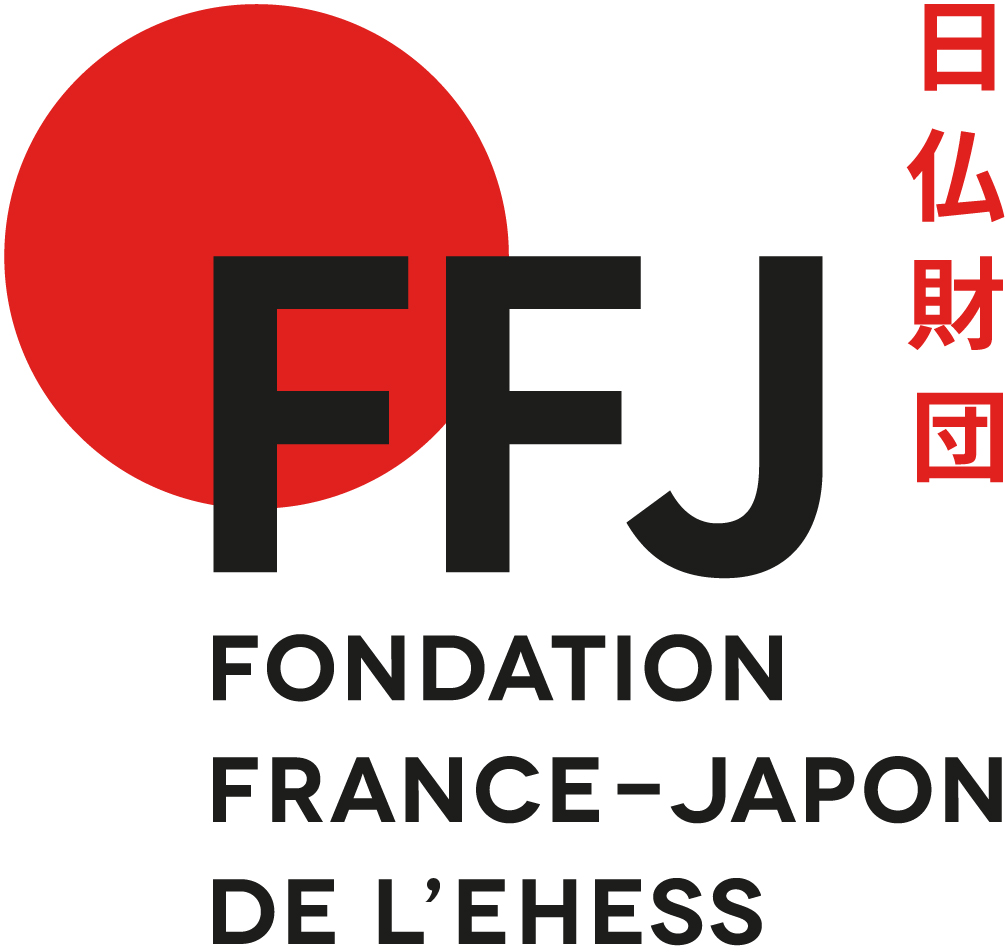Nobuko KAWASHIMASustainable Cultural Futures: COVID-19 and Re-setting Cultural Policy持続可能な文化の未来:COVID-19と文化政策の再構築SummaryThis is a research project co-funded by the UK and Japanese research councils for 3 years to envisage a sustainable future of culture and the arts effectively supported by policies, with three focused themes: values of culture, creative labour and the digitalization of culture. French cultural policy will be referenced in the investigation. Cultural Policy ResearchThis research project is the first major Japan-UK scholarly collaboration in cultural policy research funded by the British and Japanese research councils (UKRI and JSPS) for the duration of 36 months. Cultural policy here is defined policy principles and concrete programmes of governments to help preserve cultural heritage, support contemporary creative activities and encourage their dissemination to the public. Cultural economics as an applied area of the economic discipline has laid a basis since the 1970s (by such people as Ruth Towse and David Throsby) examining the rationale of public financing of culture, its efficiency and effectiveness as well as the economic/industrial structures of various cultural sectors. Cultural policy studies developed later since the 1990s, employ a broad range of disciplines from humanities and social sciences such as sociology, anthropology, critical studies and public policy studies. The international research community of cultural policy meets at a bi-annual, international conference (International Conference on Cultural Policy Research) and develops research via several peer-reviewed journals dedicated to this area (e.g., International Journal of Cultural Policy and Cultural Trends). Examining UK and Japan from FranceIt is important for the project to have another dimension, namely, European. The aforementioned conference and journals tend to be dominated by British, Australian and Nordic researchers with a relatively low profile of major European countries such as France and Germany (where research is highly developed in their respective languages). Academic researchers in the UK in particular tend to be highly critical of cultural policies becoming ‘instrumental’ (i.e., serving non-cultural purposes such as economic and social), assuming that this is the case everywhere. This view, prevalent in the English language literature, needs to be counterbalanced, whilst the Japanese research that tends to be confined to domestic issues also needs repositioning. Looking at both the UK and Japan from a third-party country would help the project to have a well-balanced approach as well as to benefit from having a better understanding (and critical views) of French cultural policy, a regime that the Japanese researchers tend to idealize. Cultural Policy Basis—Pre-COVID-19Before the outbreak of COVID-19, cultural policy in Japan, the UK and many other countries was premised on three basic assumptions: (1) that policy goals are better expressed in economic terms (for a critical view on this, see, e.g., McGuigan 2015), (2) that cultural workers endure precarious working and living conditions (e.g., Banks 2017) and (3) that live performance and display take priority over the virtual. The research project will reconsider this pre-pandemic basis of cultural policy in Japan and the UK, investigate policy responses to the pandemic and identify new areas for policy intervention to help advance cultural policy research and to make the cultural sector more sustainable and resilient (see Lee et al. 2021). Three Themes of the ProjectThis interdisciplinary project is thematically structured around 3 issues: the values of culture; cultural work; and digitalised cultural consumption. It focuses on theatre and museums, two sectors that have been significantly affected by the pandemic and are under intense pressure to actively embrace the virtual. First, the project will re-map the meanings and benefits of culture in the context of the pandemic via a systematic literature review and large-scale online surveys. From this, the project team will identify and describe the new, emerging social consensus regarding the values of culture and the purposes of cultural policy (Throsby 2010). Second, the project will examine the functions of key institutions that affect the nature of cultural work (artists’ unions, public funding, contracts, industry practices and relevant labour policy, see e.g. Menger 2014; Murray and Gollmitzer 2012; Bille 2020) and identify potential changes that would allow them to more effectively address the precarity of cultural work in the context of the continued impact of the pandemic. Third, via case studies of select theatres and museums, the project will investigate how these entities reconcile their traditional beliefs in materiality and ‘live’ with the pressures to go digital in production and audience engagement. Cross-national online surveys will paint a bigger picture of whether and how the online delivery of digitalized cultural content can bring larger and broader audiences to culture: the biased nature of audience participation in the subsidized culture is a perennial problem in European cultural policy (Bourdieu 1984; Mangset 2020). Across these three themes, the project will employ a mixed methodology, combining a systematic literature review, surveys, discussion panels, interviews and case studies. Towards the Development of Comparative Study of Cultural PolicyDespite their differences in social structures and public attitudes toward culture, both Japan and the UK have continuously struggled to justify state subsidies for culture (e.g., Kawashima 2016), and their funding systems were not directly connected with individual artists and cultural workers prior to the COVID-19 pandemic. Cultural policymakers in both countries have also shown concern about the uneven level of public cultural participation and are keen to know whether and how this will change with the rise of digitalized cultural consumption. By pulling together the interdisciplinary expertise of the research team from the UK and Japan and addressing common problems and issues, this study will help advance comparative research in cultural policy (Kawashima 1995; Rosenstein 2019). By involving stakeholders from the cultural sectors of the two countries, the project will help policymakers freshly engage with the core issues of cultural policy through cross-national discussion and analysis. The Agency of Cultural Affairs (Japan), Geidankyo, Mori Art Museum, Ohara Museum of Art, Arts Council England and Equity (the UK actors’ union) have agreed to be our project partners, and there will be additional partners from both countries. The research team will actively engage with cultural practitioners and with experts in artist labour, labour policy and law, contracts, copyright (see Landes 2020) and digital technologies (see Waldfogel 2020) to explore specific policy measures to tackle the continued impact of the pandemic as well as unpredictable future risks. Relevance of FranceFor cultural policy research, France is very relevant and French scholars’ contribution to this area has been remarkable. Cultural economists are also active in France, including P.M. Menger (2014) specializing in the economics of creative labour as well as Françoise Benhamou (2017), a former President of the Association of Cultural Economics International. In turn, the research project described here has resonance and relevance to French cultural policy that increasingly needs to respond to the changing behaviour of cultural consumers. For example, cinema attendance in France which dramatically decreased during the pandemic has not recovered, with the current admissions still less than half of them in 2019 even though movie-goers over 50 years old have returned (European Audiovisual Observatory 2022). Although France is generally considered as a model country of cultural policy with a high level of public funding and a well-developed structure of administration for it, French cultural policy too has its own challenges and issues, which our analysis, thoughts and a Japanese/UK perspective may be able to address. ReferencesBanks, M (2017) Creative Justice. Bowman & Littlefield.Benhamou, F (2017) L’ėconomie de la culture, La Découverte. Bille, T (2020) ‘Artists’ Labour Market’, in Towse, R et al (eds) Handbook of Cultural Economics, Edward Elgar. Bourdieu, P (1984) Distinction (English translation). Routledge. European Audiovisual Observatory (2022) FOCUS 2022. Kawashima, N (1995) ‘Comparing cultural policy: towards the development of comparative study’, European Journal of Cultural Policy, 1, 2, 289-307. Kawashima, N (2016) ‘Do the Arts and Culture Have a Positive Impact on Happiness? Beyond Methodological Issues’, in Tachibanaki, T et al (eds), Advances in Happiness Research, Springer, 311-324. Landes, WM (2020) ‘Copyright’, in Towse, R et al (eds) Handbook of Cultural Economics, Edward Elgar. Lee, H.-K., Chau, K and Terui, T (2021) ‘The covid-19 crisis and “critical juncture” in cultural policy’, International Journal of Cultural Policy, 28,2, 145-165. Mangset, P (2020) ‘The end of cultural policy?’, International Journal of Cultural Policy, 26, 3, 398-411. McGuigan, J (2015) Neoliberal Culture. Basingstoke: Palgrave Macmillan. Menger, P-M (2014) The Economics of Creativity (English translation). Harvard University Press. Murray, C and Gollmitzer, M (2012) ‘Escaping the precarity trap: a call for creative labour policy’, International Journal of Cultural Policy, 18, 4, 419-438. Rosenstein, C (2019) ‘Cultural Policy Archetypes: the Bathwater and the Baby’, International Journal of Cultural Policy, 27,1, 16-29. Throsby, D (2010) The Economics of Cultural Policy. Cambridge University Press. Towse, R et al (eds) (2020) Handbook of Cultural Economics, Edward Elgar. Waldfogel, J (2020) ‘Digital Technologies in the Cultural Industries’, in Towse, R et al (eds) Handbook of Cultural Economics, Edward Elgar. |
 |
Recherche |  |
FFJ Research Statement |  |
Nobuko KAWASHIMA |
| Inscrivez-vous à notre Lettre en cliquant ici |
*En cas de problème, vous pouvez aussi vous inscrire en envoyant un mail à sympa@ehess.fr, avec pour titre "subscribe ffj_french_news".






